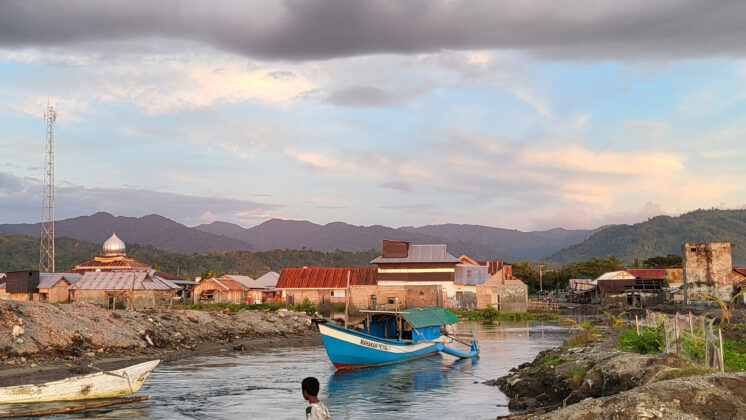In 'Legal and illegal blurred. Update on tin production for consumer electronics in Indonesia', FinnWatch describes severe environmental destruction as a result of unregulated informal tin mining operations in Indonesia. The global electronics industry is an important consumer of tin.
In 2007, makeITfair reported that the global electronics industry utilises a significant proportion of the supply of metals, such as tin, part of which is mined under harsh conditions in developing countries. The majority of electronics companies were unaware of their importance as metal consumers. MakeITfair has called on these companies to take responsibility for their supply chain, including the extraction of the metals. This FinnWatch update to the makeITfair project adds to the report 1 published in 2007 on the social and environmental conditions on Indonesia’s tin mining island. The 2007 report described how tin has scarred two Indonesian islands, namely Bangka and Belitung, producing ghost towns and moonscapes, the effects of mining on the environment, and how farmers became miners, etc. The information was based on a desk study by the Indonesian Jatam Mining Advocacy Network.
During a field visit in November 2008 to Bangka, FinnWatch witnessed severe environmental destruction and unregulated informal mining operations. FinnWatch talked with several miners, whose stories, pictures and working conditions are presented in this update.
Conclusions:
- Most of the miners are not mine owners, but either ”sharecroppers” or wage labourers, who work in terrible conditions with no social insurances. There are no reliable data on the number of mining accidents that have caused injury, disability and death, but this number seems to be high according to many interviewed.
- Tin mining has benefited many people, even the poorest miners, who have been able to educate their children. However, it seems many miners have stayed poor and were suffering from the current dramatic drop in tin prices, even if they had done the job for years. The situation of middlemen (such as land owners) was different. They may earn 50-100 times more than the small miners, based on revenue information from the interviewees.
- The environment is seriously damaged by tin mining. Only a few former mining areas have been reclaimed so far. The responsibilities that different actors (companies, miners, land owners, smelters and government) have in this regard are unclear. They tend to blame each other for the problems. There are also unrestored mining pits originating from the Dutch colonial period.
- Mining takes place in prohibited areas such as on the coastal line, but operations are ”protected" by different state bodies. It seems that the local government has no control over the mining taking place in protected areas.
- Informal small scale mining is supported by the local administrations. The legality of many small scale mining operations is unclear. Some of them have obtained (or were in the process of obtaining) permits from the companies, some from the land owners, while others had no permits. However, it seemed that everybody buys concentrate even from ”illegal” miners, through collectors/contractors.
- There are tensions and conflicts going on between different actors such as central government, local administrations, big tin companies and independent smelters. This is due to the decentralisation process and plurality of regulations, historical power and resistance structures, uncontrolled informal mining, etc.
- All stakeholders, particularly mining operators and local government, should take shared responsibility for the socioeconomic and environmental repercussions of mining activities. The distribution of revenue from mining operations among various stakeholders should seriously take into account equity and justice considerations. More resources should urgently be channelled to environment reclamation and developing alternative livelihoods (traditionally local people have had other livelihoods besides tin mining).











